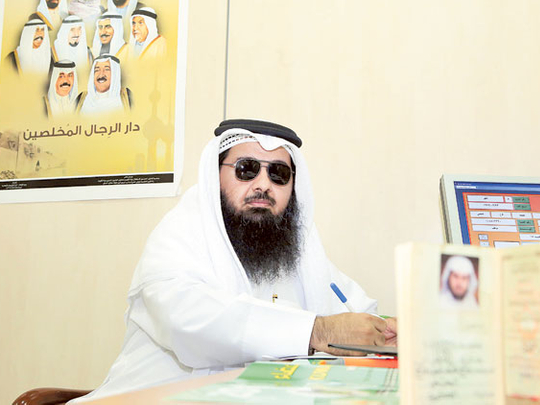
Manama: Three days into the registration process for Kuwait’s parliamentary elections in late July, 136 people have signed up their names as candidates in the country’s five electoral districts.
The Third District leads with 43 candidates, followed by the Fifth District with 38. The Third District has 25 while the First District and the Second District have 15 candidates each.
The large number of people who registered their names seems to indicate that the call by the opposition to boycott the elections on July 27 is not being heeded.
Opposition figures have urged Kuwaitis to stay away from polling stations and avoid casting ballots as part of the bitter standoff with the government following the amendment of the 2006 electoral law that slashed the number of candidates a voter could elect from four to one.
The legal battle ended in June when the Supreme Court upheld the amendment although it dissolved the parliament voted in late last year in elections that the opposition boycotted as well.
Local media reported that many of those who boycotted the polls on December 1 said that they would participate this time, arguing that the Constitutional Court had issued its ruling and that it should be respected.
Former lawmaker Nasser Al Merri urged Kuwaitis to ignore boycott calls and cast their ballots.
“Participation is the right way to make the changes needed to move forward and to distance the country from tense situations,” he said. “Boycotting the elections is simply giving up rights granted by the constitution. The regional and international developments demand that we work together and preserve our nation from any evil under any form,” he said, quoted by local Arabic daily Al Watan.
As the battle for the seats started to heat up, only three women have so far submitted their papers to run in the elections, in another indication of the formidable challenges they have to overcome.
Women made history in 2009 when four candidates won seats in a historic breakthrough that was feted in the country and in the region as “an achievement”.
However, no woman was able to win in the elections held in February 2012 when a new parliament was voted in where religious and tribal conservatives achieved impressive scores.
After the dissolution of the parliament in June, fresh elections were held in December, under the new “one voter, one vote” principle, in which three women won seats.
Women have limited options in running their campaigns and garnering support when they face the crushing power of organised tribes that endeavour to influence the voting in the favour of their candidates.
Local reports pointed to the major tribes holding consultations to agree on the names of their candidates.
“Most tribes have gone for fielding only a few candidates to ensure that votes are not scattered,” sources told Al Watan.











